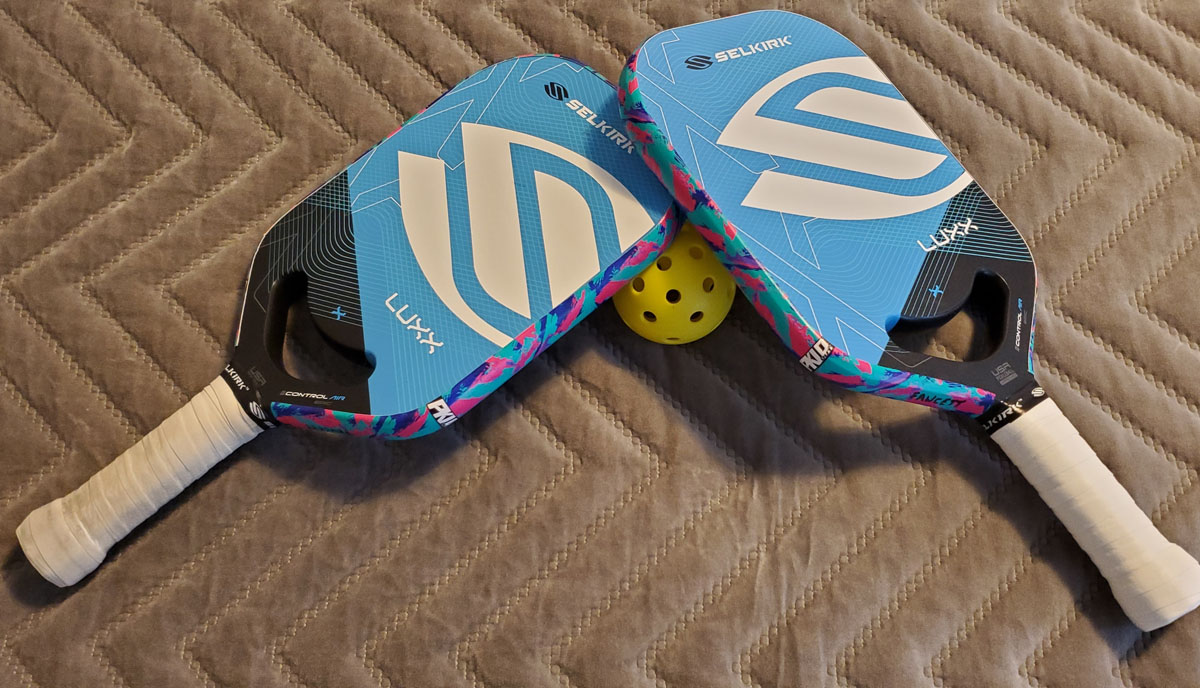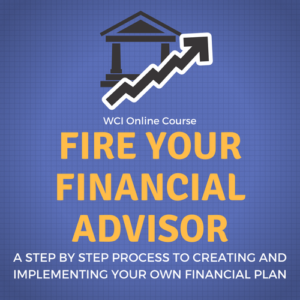(If you’ve had a chance to read The Doctors Guide to Finding Joy in Your Work, please take a moment to leave a review on Amazon. Reviews help people find good books to read.)
I have dabbled at playing pickleball a few times a year since the late 70s, even going so far as to have a pickleball court built at my house in 2006. Yet, no one would call me a pickleball player. This year I decided it was time to get serious. Since January, I have taken weekly lessons and started playing 10+ hours a week with players that are better than me, which is just about everyone.
My ability has improved phenomenally now that I’m taking it seriously. Others have noted it as well and have complemented me on the speed at which I am improving. I have also been doing drills to make my shots more accurate. For a month I tried out different paddles to find the paddle that feels the best.
I’ve met dozens of players and have been watching how they play, in addition to watching videos on tactics. Then it dawned on me that the things that create better results in pickleball are the same things that create better results in everything else in life, including investing. Good principles work across multiple fields of study.
Here are a few of the take home points I learned in pickleball and how they translate into better investment results.
Learn from someone who has done what you want to do
The very first thing to do in any new endeavor is to learn how the game is played. Since it is best not to learn this from another beginner, I take lessons from a top pickleball player who is a certified coach. If you begin a journey by getting good advice from someone who has already done what you want to do, you will avoid making mistakes and won’t develop bad habits. Results stack up a lot faster as well.
I watch many smart people, physicians come to mind, who think being great in one area of life means they will automatically be great in others. But to become a great physician, we first had to endure 1,000s of hours of training from others who have already done what we wanted to do. Contrast this with those who have been playing for years and are not any better now then they were five years ago. That used to be me.
Investing is not hard, but like everything else in life, learning the basics is the foundation needed. You will not learn what you need to be a successful real estate investor by taking an online course from the person who just bought their first investment property last week and decided to teach you how to be a real estate investor. Get advice from a seasoned investor who has been successful for many years and really knows what makes a good investment and how to run it. Put in some effort and you will see your results skyrocket.
The serve is the most important shot in the game
In pickleball, the most important shot is the serve, since points are only given to the serving team. If we always hit the serve into the net, we will never score any points and we’ll never win a game.
When we begin, we must learn to hit a serve that is in play more than 95% of the time. It doesn’t need a fancy spin or to be super-fast. It just needs to land in the court. If we fail to make a good first shot, we fail to earn a point. We must earn points to win.
Investing is the same. The most important shot in the game is to put money into our investment account starting from our first paycheck, or if we haven’t started yet, our next paycheck. If we don’t get any money into our accounts, we will never collect any interest. If we are not earning interest, we can’t earn any compound interest, which is the most important thing for investing success.
I recently wrote about someone who commented on one of my articles that thought the reason I did well financially was because I made more money than him. He stated that he “couldn’t” even begin investing until he was in his 50s. His assumption was wrong.
The difference is I chose to start investing in my first year of residency at age 26. And I have hit my serve in-bounds every year since. Choosing to live on less income than I earned from my first full time job gave me a 25-year head start on him in savings and interest compounding. It will be very hard for him to catch up with me now. He could have done the same thing, but he chose a different path.
It all starts by getting a good serve in play. Starting is half done.
Shoot for the line in the center of the court
When I started playing pickleball, my shots were not very accurate. I had about a six-foot margin of error in each direction. This means if I tried to hit the ball near the sideline, I had a 50:50 chance of hitting it out. If I hit it out, I either don’t score a point and the serve now goes to the opponent, or I give a point to my opponent.
How do I avoid hitting it out? I aim for the line in the center of the court. This gives me about a ten-foot margin of error before the ball is declared out. If my shooting has a six-foot margin of error and I aim for a spot that is ten feet from going out, I am likely to keep every shot in play. I play it safe and keep the rally going.
This is exactly what we should be doing with our investments; aim for a low probability of losing. Individual stocks are risky, they have the highest probability of dropping to a value of zero. Index mutual funds have a substantially lower probability of going to zero. Shoot the safe shot.
Don’t get fancy
I see many beginner pickleball players trying to hit fancy spin shots. When they finally get one to work, it looks so cool. The problem is, they don’t know what they are doing and hit far more bad shots than good ones. But they only remember those cool ones that the other person couldn’t return.
We should be a very good and seasoned player before we even start thinking about fancy spin shots. Hit boring vanilla shots that stay in and give us the best chance of scoring a point.
There is nothing glamorous about index mutual funds. But they are very predictable and give good enough results that we don’t even need to keep an eye on them.
Stop trying to make fancy investments. There is no need to buy puts, calls, margins, futures, bitcoin, precious metals, investment art, oil wells, or any other fancy/alternative investment. Just put money into solid, stable places with dependable results. Stick to index mutual funds, certificates of deposit and other interest-bearing accounts, and cash flowing real estate.
Avoid unforced errors
Most points scored in lower level pickleball (skill rating less than 5.0 out of 6.0) are because of an unforced error. Often a player tries to get fancy but screws up and loses the point. If the most common way to get a point is by your opponent making a mistake, then just make sure to get the ball back over the net and give him another chance to make a mistake. Let his errors give you points. You can even give him a perfect lob, setting him up for a kill shot, and watch him get excited just before hitting the ball into the net. Your point.
In finance, we also want to avoid unforced errors. These include such things as borrowing money from our retirement account, buying that great stock tip our grand-step-neighbor-in-law heard, going on vacation with the money we were planning to put in our IRA, filling our safe with gold, buying stocks on margin, investing in things we don’t understand, buying a house that is too expensive for our income, replacing our car every two years, staying in $1,000 a night resorts, buying a $15,000 watch, owning $30,000 worth of hand bags, or carrying a balance on a credit card.
Investment errors can be very expensive. I made an unforced error when I purchased stock in a start-up company, in an area I knew nothing about, hoping to hit a homerun. That error cost me seven figures and could have easily been avoided.
Don’t exaggerate your results
In pickleball you can rate your own skill level on a scale of 1 to 6. One is a beginner and 6 is a top pro. Most people rate themselves higher than they are. We always see ourselves as better than others see us.
I asked my coach how he would rate me. He told me he doesn’t answer that question anymore. Since people always rate themselves better than they are, when he tells them the truth, they get upset. He doesn’t want to disappoint them with the truth.
I recently heard one person complain about his DUPR rating. DUPR is a computerized system of looking at wins and losses against other DUPR ranked opponents. He thought he was around a 3.75, but the system rated him just under 3.0. He thought there was something wrong with the rating system. He simply could not admit he was a 3.0 player.
We do this all the time with our investing. We remember the winners that we picked and forget the losers. We perceive our results better than they are. I remember asking one guy, who does day trading, how his results were. He told me he was doing great and beating the market. Then he told me about his last few winners that beat the market. He never mentioned any losers he picked.
Later, I asked his wife the same question. She said he’s doing a little better than breaking even. He would be better off getting a real job that pays a real income. Then she mentioned a few of his recent losers. If we are not honestly looking at total returns, we do not know how we are actually doing. If our perception is better than reality, we are likely to keep repeating our mediocre results.
A new paddle will not equal better results
I see a lot of players showing up with the latest expensive new paddle. They then tell me why it is such a great paddle and how it will improve their game.
During my month-long paddle picking spree, I chose the paddle that felt best to me. But when it came down to my final decision, all of the candidates were great paddles. I would do just as well with any of them. Once I picked a paddle, I did not try any others. Paddle envy is a bad and expensive thing. Swapping from one great paddle to another will not change my game. Once I moved up from the cheep paddles to the good ones, there is no more gain by moving to a different great paddle.
Investing is similar. Once you are making conservative and solid investments, you will not improve your game by getting the latest new stock picking program or going to somebody’s conference on playing the market. Don’t waste any of your precious time looking for that new technique that will make you rich, or reading articles about how you should invest in the “current” market. Good investing doesn’t change as the market changes.
Give yourself a solid investment foundation and keep doing the basics well and you will win at investing, or anything else in life. If there is something I’ve done in life that you want to learn, don’t hesitate to contact me. Look at the book titles and course titles I offer and if one resonates with your needs, read it and apply the principles.










Nice analogies and wonderful article!!
What paddle do you use?
Those in the picture are my paddles. Selkirk Luxx Contol Air Epic.
Good advice